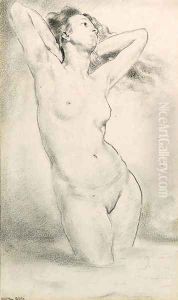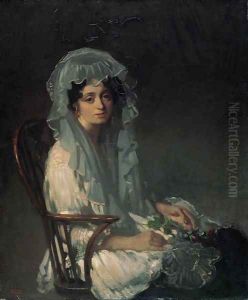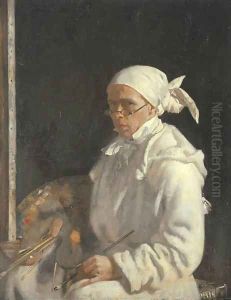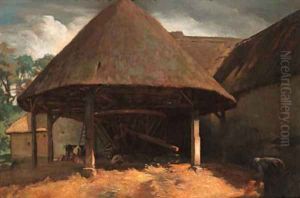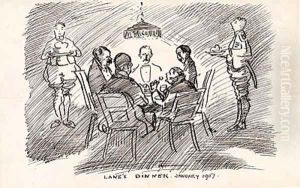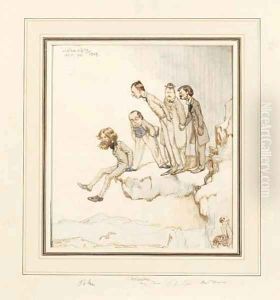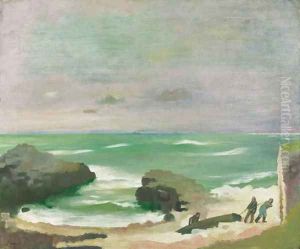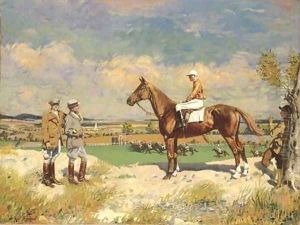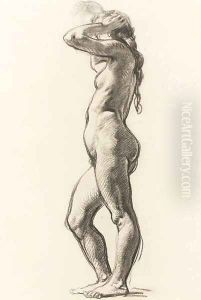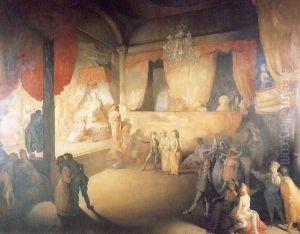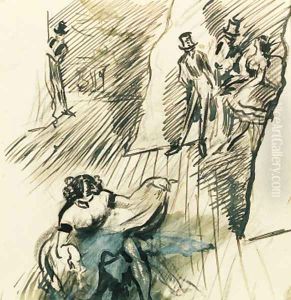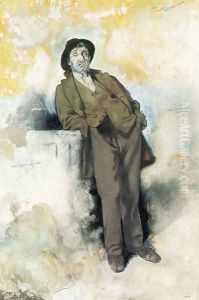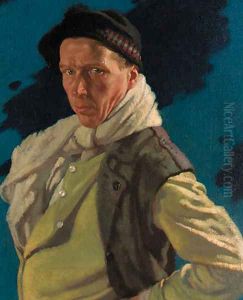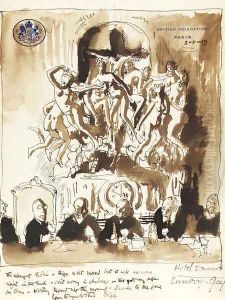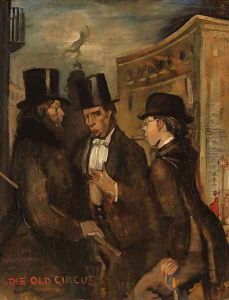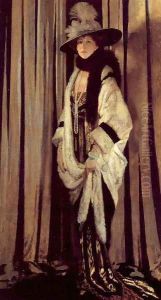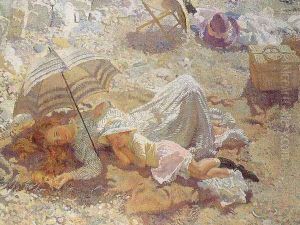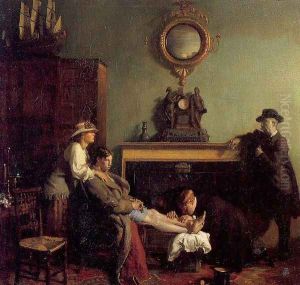Willam Orpen Paintings
Sir William Newenham Montague Orpen, KBE, RA, was an Irish artist born on November 27, 1878, in Stillorgan, County Dublin, Ireland. Recognized for his portraiture and as a genre painter, he was also a prolific war artist during World War I. Orpen attended the Metropolitan School of Art in Dublin from 1891 to 1897, where he was a standout student. He later studied at the Slade School of Fine Art in London, where he honed his skills and emerged as a talented draughtsman and painter.
Orpen became part of the London scene and was known for his engaging personality and artistic talent. He painted portraits of society figures and was a member of the New English Art Club. His work commanded high prices, and he became one of the most successful portrait painters of his time in Britain. Orpen was also known for his self-portraits, which often displayed a keen sense of introspection and self-awareness.
With the outbreak of World War I, Orpen was appointed an official war artist in 1917. He visited the Western Front numerous times and produced a significant body of work that captured the grim realities of war. His paintings from this period, such as 'Dead Germans in a Trench' and 'The Mad Woman of Douai', are regarded as some of the most powerful and poignant war art to have emerged from the conflict.
After the war, Orpen's experiences impacted his work, and his post-war paintings reflected a more somber and reflective mood. He was knighted in 1918 for his contributions as a war artist. However, his later work did not achieve the same level of acclaim as his earlier portraits and war art.
Sir William Orpen died on September 29, 1931, in London, at the age of 52. Despite his relatively short life, his work remains influential, and he is celebrated as one of the leading British artists of the early 20th century. His paintings are held in many major collections, and his contributions to art, especially his war paintings, continue to be studied and admired.
